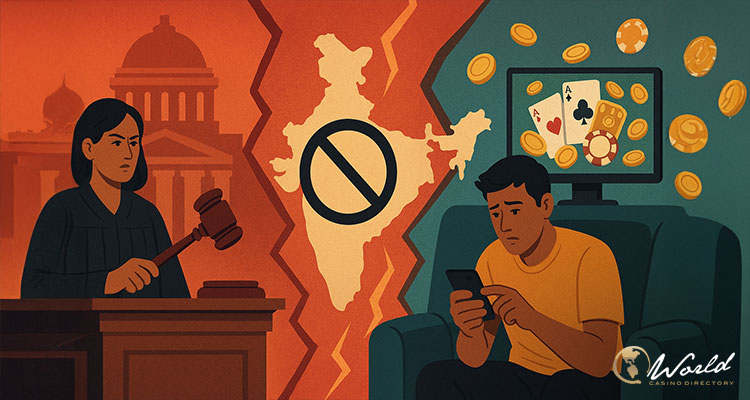
India’s online gaming industry, once seen as a booming sector backed by major global investors, has been thrown into turmoil following the government’s sweeping ban on money-based online games. A23, one of the country’s leading operators known for hosting rummy and poker platforms, has launched the first legal challenge against the new legislation in the Karnataka High Court, arguing that the law unfairly targets legitimate skill-based games.
Legal Challenge by A23
The petition, filed on August 28 by Head Digital Works, the parent company of A23, argues that the Promotion and Regulation of Online Gaming Bill, 2025, “criminalises the legitimate business of playing online games of skill, which would result in the closure of various gaming companies overnight.” The filing, reviewed by Reuters but not yet publicly released, further describes the law as a “product of state paternalism,” urging the court to declare it unconstitutional when applied to games of skill like rummy and poker.
The Indian Ministry of Electronics and Information Technology has not issued an immediate response to the legal action. A23, which promotes itself as a platform with more than 70 million registered players, is hoping to secure judicial relief to protect its business model and that of other skill-based gaming operators.
The ban has had a rapid and severe effect on the sector. Parliament passed the Promotion and Regulation of Online Gaming Bill, 2025, last week, with President Droupadi Murmu signing it into law shortly after. The legislation, designed to address concerns about gambling addiction, money laundering, and financial fraud, bans all forms of online money games but leaves e-sports and casual social gaming untouched.
The impact was immediate. Platforms such as Dream11, Mobile Premier League (MPL), My11Circle, WinZO, Zupee, Flutter and PokerBaazi have halted their money-based gaming operations. Dream11, a major fantasy sports operator, saw its revenues collapse almost entirely. CEO Harsh Jain told CNBC TV18, “95% of our group’s revenues have disappeared overnight,” though the company has no current plans to legally contest the legislation. MPL similarly confirmed it would not pursue a court challenge, advising industry bodies to focus instead on free-to-play business models to stay operational.
The abrupt regulatory shift comes as a heavy blow to a sector valued at $3.7 billion in 2024 and projected to grow to $9.1 billion by 2029, according to the India Gaming Report 2025. Foreign direct investment of nearly $3 billion flowed into India’s gaming space over the past five years, driven by global players like Tiger Global and Peak XV Partners, making India one of the world’s largest gaming markets.
Divided Industry Response
Reactions to the law have been sharply divided. Supporters argue that banning money-based games is a necessary safeguard to protect consumers from gambling addiction and fraud. Critics, however, believe the ban is overly broad and risks undermining innovation and financial stability within the sector.
Ananay Jain, Partner at Grant Thornton Bharat, described the legislation as a “double-edged sword,” acknowledging that while the law provides clarity and accountability, it simultaneously “risks stifling innovation and burdening startups” that had thrived in the previously regulated environment.
Industry organizations such as the All India Gaming Federation (AIGF), E-Gaming Federation (EGF), and the Federation of Indian Fantasy Sports (FIFS) have collectively appealed to Home Minister Amit Shah, emphasizing the sector’s valuation of Rs 2 lakh crore and annual revenues exceeding Rs 31,000 crore. They argue that the ban will lead to significant job losses, reduced tax revenues, and a slowdown in technological growth.
According to Reuters, while A23 presses forward with its legal challenge, other major operators like Dream11 and MPL have signaled they will pivot their focus toward alternative business models, including free-to-play offerings, to weather the regulatory storm. Some observers have noted that the sudden absence of regulated domestic platforms could benefit offshore operators, who, despite facing high taxation, may now find themselves with a monopoly on real-money gaming in India.
